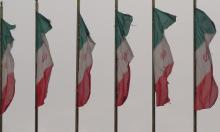U.S. Treasury's secretary visits China, plans talks on yuan, trade
U.S. Treasury Secretary John Snow toured the financial center of Shanghai on Wednesday as he embarked on a visit expected to focus on China's currency policies and its growing trade surplus with the United States.
Speaking above the trading floor of Shanghai's showcase stock exchange, which was virtually empty because transactions are all automated, Snow pronounced himself "astonished" by the sizzling pace of Shanghai's transformation from a crumbling relic of central planning into a modern commercial hub.
"The changes are nothing short of breathtaking," he said.
Yet Snow urged China to move even faster in pushing ahead with reforms of its nascent capital markets, which still lag behind the rest of the booming economy. China allows only limited foreign exchange trading, its bond and other financial products markets are in their infancy, and most companies choose to list shares not on domestic bourses but in Hong Kong and elsewhere.
"It's clear the potential of the financial sector to play a larger role in the economy is enormous," Snow said, adding that he would continue to press for greater openness for foreign companies _ and for more progress toward a more flexible, market-driven exchange rate.
"I think it's in China's interest to continue down this path," said Snow, who is leading a delegation in Beijing, backed by Federal Reserve Chairman Alan Greenspan. They plan to meet with Chinese officials Oct. 16-17 in Beijing for the U.S.-China Joint Economic Commission, which serves as a regular forum for U.S. and Chinese officials to discuss economic issues.
Both sides say the currency issue will be on the agenda during the talks, but the Chinese side warned Snow not to push too hard with demands to further loosen the yuan's exchange rate.
The U.S. side should "heed fully the Chinese position on exchange rate reform," Foreign Ministry spokesman Kong Quan said at a regular press briefing Tuesday.
In July, China revalued the yuan by 2.1 percent and scrapped its decade-old peg to the U.S. dollar, choosing instead to let it trade in a tightly restricted float against a basket of currencies of its major trading partners.
Since then, the yuan has gained about 0.3 percent against the dollar. On Tuesday, it closed at 8.0879 per dollar, reports the AP.
P.T.
Subscribe to Pravda.Ru Telegram channel, Facebook, RSS!




